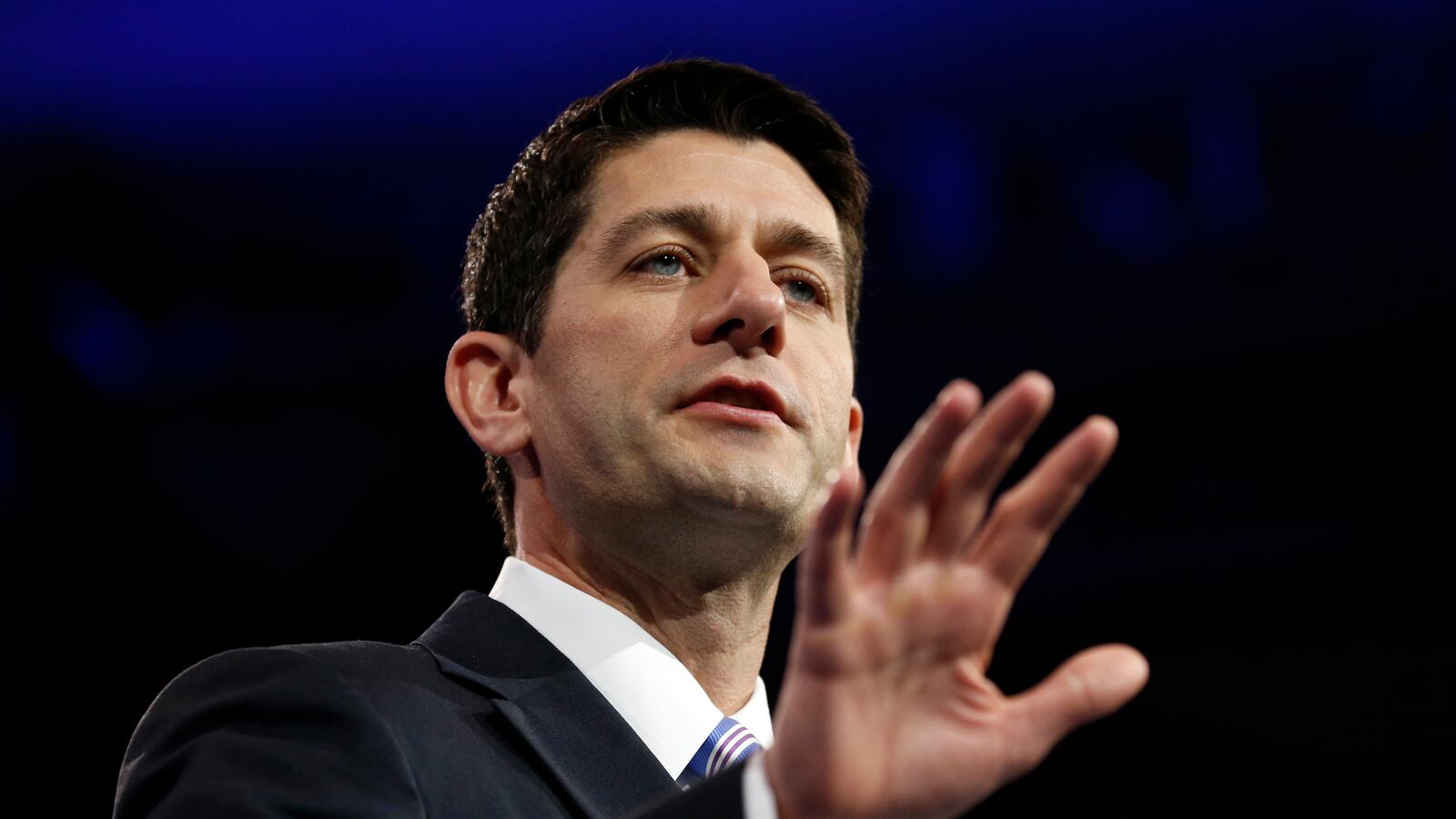At least one part of the 2016 presidential election is going to look a lot like 2012.

Tuesday’s rollout of the latest budget from Rep. Paul Ryan (R-WI) served as a reminder that while “you didn’t build that” and “binders full of women” may be relegated to historical trivia, the political debate over Ryan’s budgetary proposals will be as heated in the next presidential election as it was in the last. It also has the potential to do as much harm to the next GOP nominee.
Every potential GOP candidate for 2016 has endorsed Ryan’s controversial budget in the past. In its 2014 iteration, it would slash Medicaid and food stamps, privatizing and voucherizing Medicare, repeal Obamacare (while keeping the cuts to Medicare that were part of the ACA), and cut taxes and domestic spending while adding nearly $500 billion over ten years to the military budget.
Ryan’s plan is not going to be law—in fact, it’s not going to be easy to get 217 Republicans in the House to vote for it, let alone gain even an iota of support from President Obama or Democrats in the Senate. But it will define the political debate and serve to set the GOP’s budget priorities. In a statement, RNC Chair Reince Priebus praised Ryan’s proposal, saying, “Americans are calling for an end to the reckless spending, and Chairman Paul Ryan’s budget answers that call. It treats working families fairly and will strengthen our economy.”
In short, the proposals of the 2012 Republican vice presidential nominee have already become party orthodoxy. The problem for the GOP and 2016 hopefuls is that the details of the plan aren’t very popular and already proved a major drag in 2012 on Mitt Romney.
The risk for the GOP is that by enshrining the Ryan budget as an adjunct to the party platform ties even its most center-right figures to its proposals. In fact, a number of potential establishment candidates have already backed previous iterations of the plan. New Jersey Governor Chris Christie praised Ryan’s first budget in 2011 and expressed his support in a letter that was co-signed by three other Republican governors. This acclaim paled in comparison to that of former Florida Governor Jeb Bush who effused in 2012 that he was a “huge fan” of the Wisconsin congressman and proclaimed his support of the Ryan budget. Backing for Ryan’s budgetary proposals run the GOP gamut and other contenders like Scott Walker and Marco Rubio have bet on them as well.
The only way for Ryan’s proposals to be subject to serious debate within the Republican Party is if the Wisconsin congressman runs for President and that’s not likely to happen. With Ryan expected to succeed outgoing Michigan Rep. Dave Camp as chairman of the House Ways and Means Committee next year, it's virtually certain he won't mount a campaign for the White House.
With Ryan ensconced in Congress as one of the few Republicans on Capitol Hill to be popular both with the party’s establishment and its Tea Party grassroots, his budgetary proposals will become a sacred cow in the GOP primaries. The one presidential candidate to actually criticize Ryan in 2012 was former House Speaker Newt Gingrich, who called the Wisconsin congressman’s proposals “right wing social engineering” in an appearance on “Meet The Press.” The resulting backlash was so great that Gingrich quickly apologized and took back his statement. Three years later, it’s unlikely if any credible GOP candidate would dare let himself think, let alone say, such a thing.
This means that with the near-unanimous support for Ryan’s budget among 2016 contenders (the only qualms had are those of Ted Cruz and Rand Paul, who both think Ryan could go further), Democrats get to target the eventual GOP nominee on favorable playing ground. It certainly doesn’t doom any Republican presidential campaign to failure in advance, but it adds a handicap for any contender—particularly those like Jeb Bush and Christie who would be trying to come across as more centrist and less Tea Party. While lowering taxes is always popular and Obamacare may be prove to be unsuccessful, supporting cuts in Medicare and drastic reductions in domestic discretionary spending doesn’t poll well and makes for great attack ads.
After all, if we’ve learned anything in the past few years, it’s that swing voters want government to keep its hands off their Medicare.






